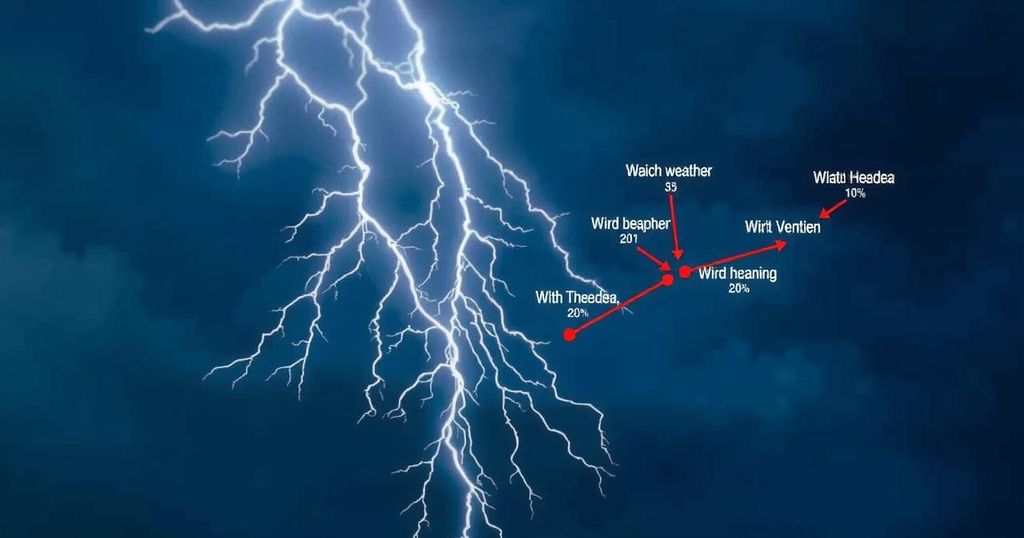‘Extreme Weather’ Nominated as a Contender for 2024 Word of the Year
The term ‘extreme weather’ has been nominated for Dictionary.com’s word of the year for 2024, reflecting a significant rise in online searches due to a year filled with catastrophic weather events. Although the title was awarded to “demure,” the increased visibility of extreme weather underscores its growing relevance in environmental discussions.
The phrase “extreme weather” has garnered notable attention, ranking among the top contenders for Dictionary.com’s word of the year for 2024. This increase in visibility reflects significant surges in online searches linked to a turbulent year characterized by devastating hurricanes, extensive wildfires, and severe heat waves. While the overall accolade was awarded to “demure,” the term “extreme weather” has found its place in global discourse, as evidenced by its recurring mention across various media platforms.
The significance of “extreme weather” originates from its consistent presence in contemporary discussions surrounding climate events. Noteworthy occurrences this year, such as Hurricane Helene, severe droughts in Brazil, heavy flooding in Nigeria, and catastrophic wildfires across regions including Canada and California, have heightened public awareness of environmental challenges. In particular, the rise in online searches reflects a compelling 70% increase in January 2024 compared to the same month in 2023, indicating a growing concern for climate-related phenomena.
The year 2024 has underscored the increasing relevance and urgency of discussing extreme weather patterns in public dialogues. The escalating frequency of severe environmental events has catalyzed a shift in societal consciousness, resulting in heightened scrutiny and discourse surrounding climate change. Such developments illustrate the need for continued awareness and action towards addressing the implications of extreme weather in various global contexts.
The discussion around extreme weather has become increasingly pertinent in light of heightened climate change awareness and its consequential effects on natural disasters. With significant incidents like hurricanes and wildfires becoming more frequent, the term has entered the mainstream lexicon. Furthermore, the online dynamics of language usage reveal how contemporary events shape public discourse, leading to terms that encapsulate urgent issues being recognized in formal contexts, such as dictionary shortlists.
In summary, ‘extreme weather’ signifies the growing concern regarding climate change, reflecting increasing public interest rooted in recent catastrophic weather events. Its nomination for Dictionary.com’s word of the year (despite not winning) signifies the term’s relevance in modern discourse, indicative of societal shifts towards recognizing and addressing environmental challenges. The considerable increase in searches further highlights the urgency of discussions surrounding extreme weather phenomena and their impacts.
Original Source: www.theweathernetwork.com




Post Comment